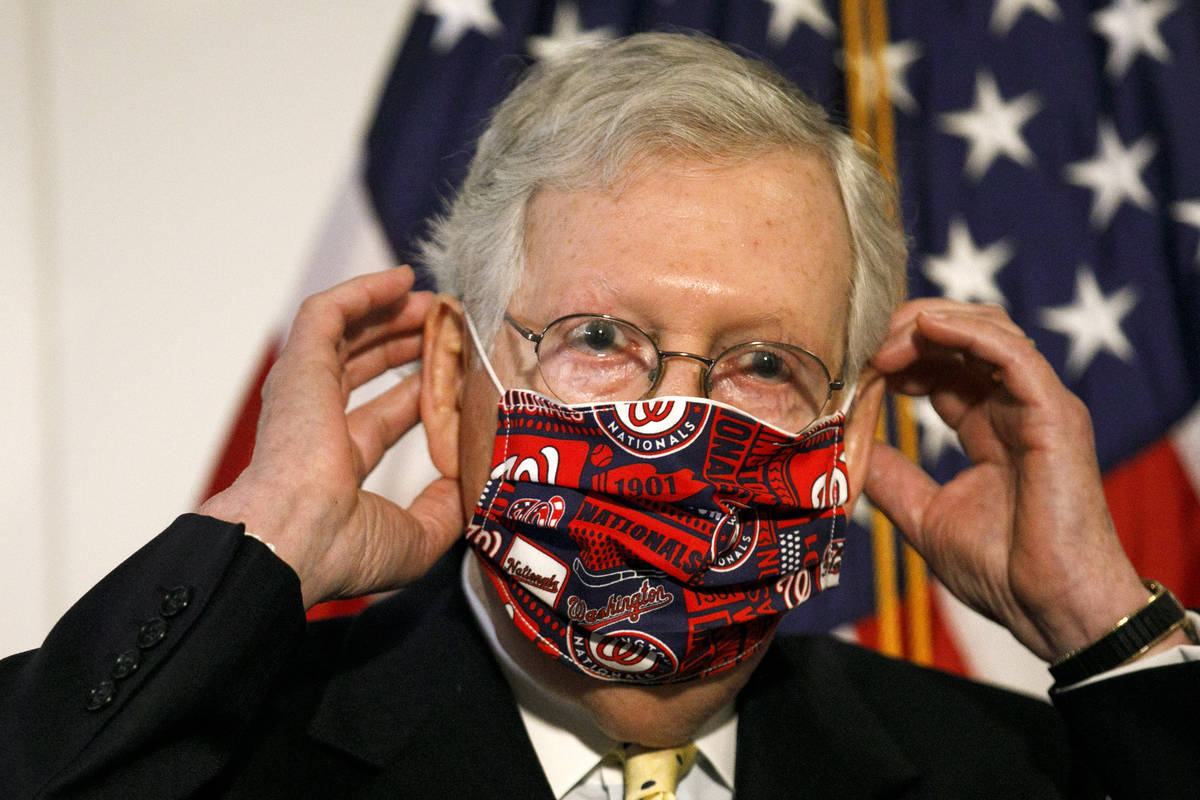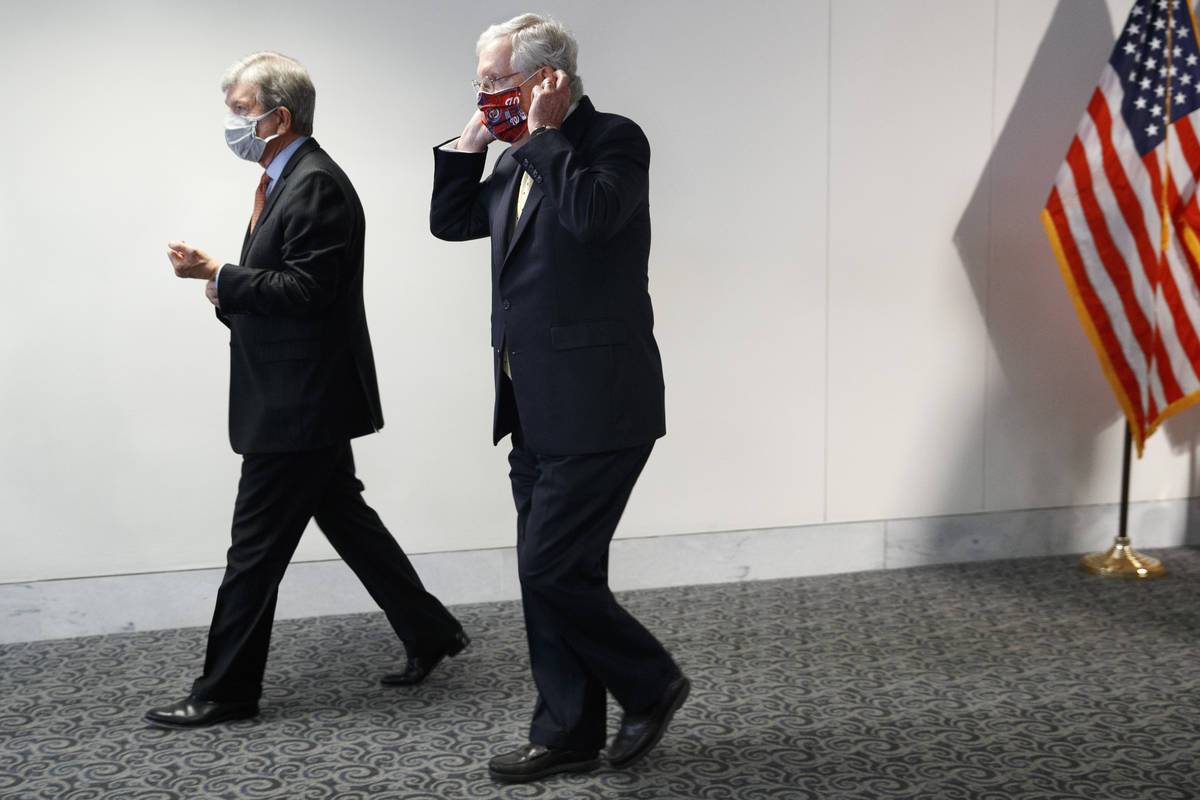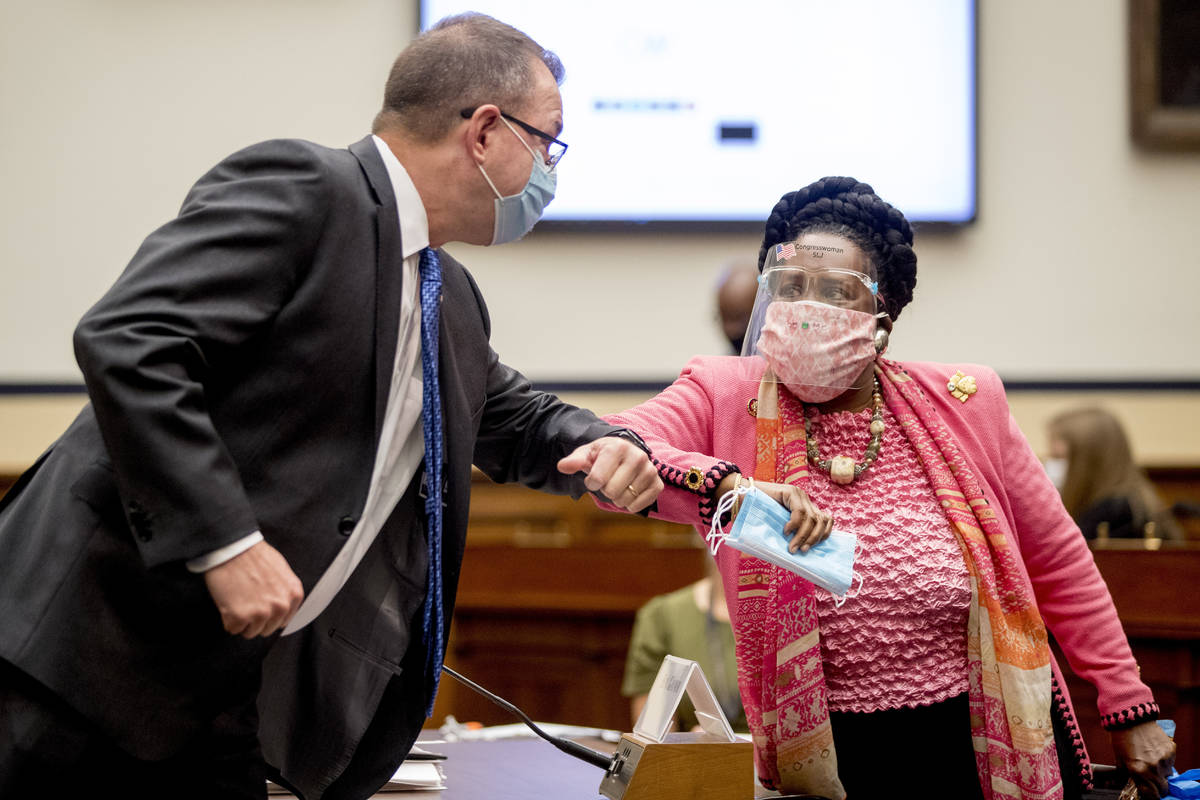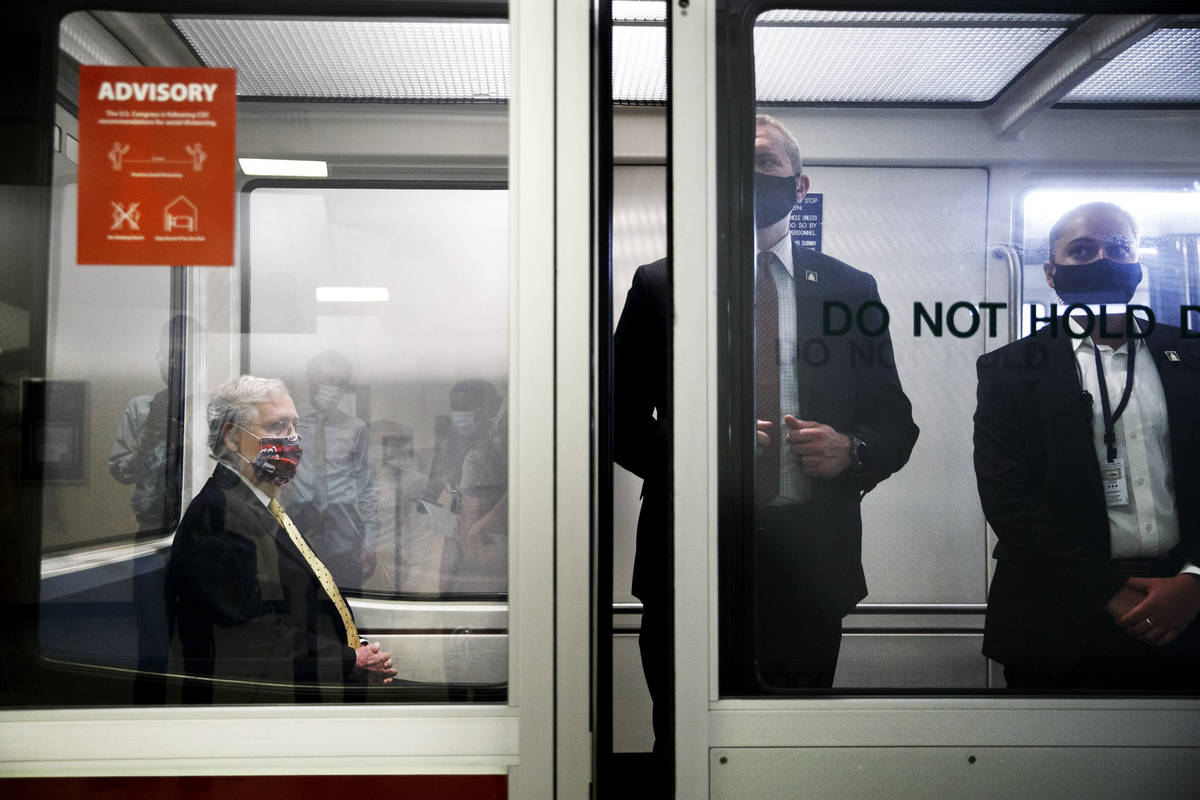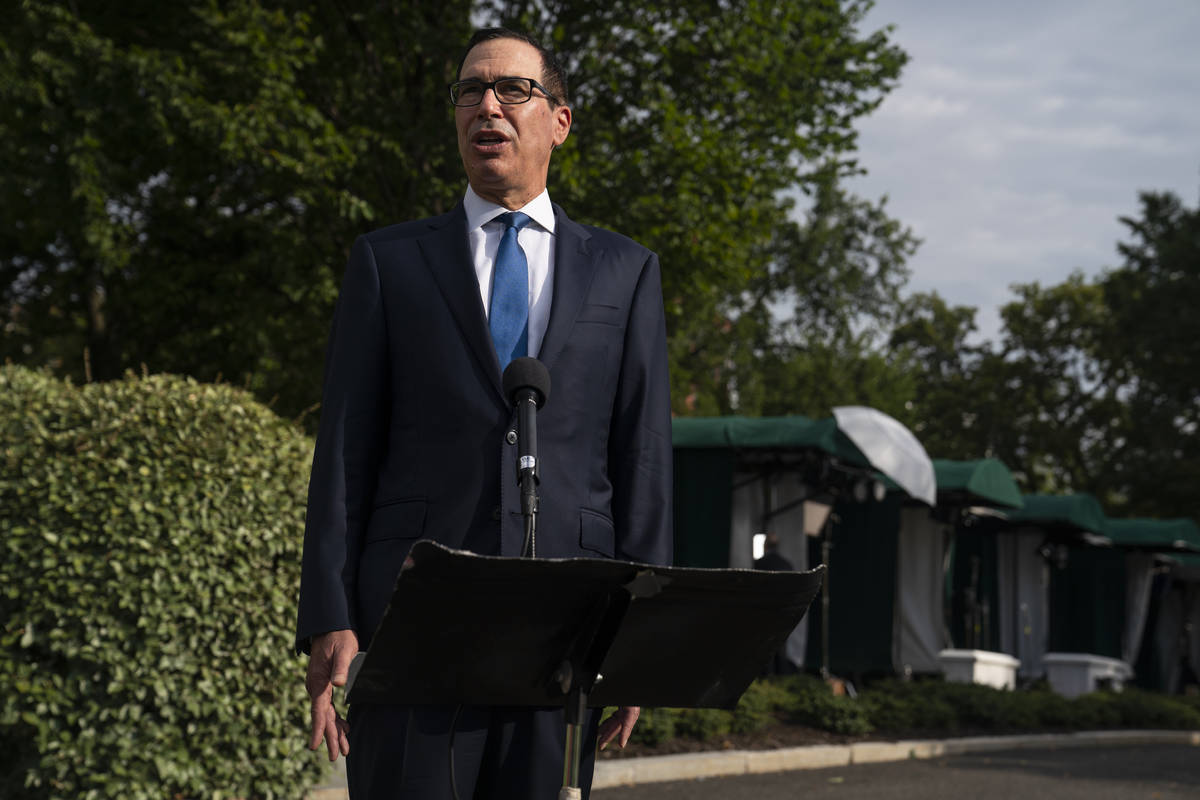States, cities push for aid as Washington bickers
WASHINGTON — States and cities led a coordinated push to pressure the GOP-led Senate on Thursday and provide nearly $1 trillion in aid in the next coronavirus relief bill as public health fallout continues to batter the U.S. economy.
Meanwhile, a Senate Republican COVID-19 relief plan set to be introduced Thursday stumbled over disagreements with the White House.
The Senate package was not expected to provide any new money for cash-strapped states and cities, which are clamoring for funds, but Republicans had planned to give $105 billion to help schools reopen and $15 billion for child care centers to create safe environments for youngsters during the pandemic.
Las Vegas, Reno, Carson City and Henderson, are part of the push on Senate lawmakers to include money for states and cities that face serious economic challenges due to the pandemic, according to a report released by the U.S. Conference of Mayors.
“Cities need significant help,” said Greg Fischer, the Louisville, Kentucky mayor and president of the bipartisan U.S. Conference of Mayors.
Help in House bill
Not surprisingly, unemployment in Nevada cities, including Las Vegas, Reno and Henderson are among the highest.
The cities are seeking $375 billion, which was included in the House-passed bill in May. Those funds were marked for all cities, regardless of population, and distributed through an application process.
States also were joined in the lobbying effort by the bipartisan National Governors Association, which is seeking $500 billion to offset budget shortfalls that could result in cuts to essential services.
Nevada is eyeing a $1.2 billion budget shortfall in this fiscal year.
Gov. Steve Sisolak, a Democrat, and the state Legislature is waiting for federal action before a potential second-called special session is called in Carson City. During the first special session, lawmakers passed a joint resolution calling on Congress to supply more flexible coronavirus aid.
Maryland Gov. Larry Hogan, a Republican, chairman of the NGA, and Vice Chairman Andrew Cuomo, a Democrat and New York governor, issued a joint statement urging the Republican Senate to adopt the Democratic-controlled House approach on aid to states and cities.
The House bill includes $500 billion for the states.
“States are ground zero in this fight,” the statement said. “ We provide the critical services Americans depend on, including public safety, education, health care, food assistance, local aid and transportation.
“We also employ more than 20 million people across the country,” the statement read.
Big differences in bills
Even though the House has proposed about $1 trillion in aid for state and local governments in its massive $3 trillion package, the Senate has balked at providing more money for states and cities, some of which were struggling economically before the pandemic.
Republicans said there would be roughly $16 billion in the bill for states to provide testing, far less than assistance sought by governors to carry out that critical task. In addition to federal assistance with testing, states want flexible aid to offset other budget shortfalls and prevent layoffs.
States and cities were hard hit when the pandemic forced businesses to close and tax and fee revenues dwindled.
Fischer, the mayor of Louisville, said he has stressed to Senate Majority Leader Mitch McConnell, a resident of the city, the need for federal help to local governments that have provided medical care and other services.
Nevada Sens. Catherine Cortez Masto and Jacky Rosen, have joined other Senate Democrats in urging McConnell to take up the House version of the relief bill, or provide help to cities and states in the Senate version of the legislation.
Cortez Masto said she would continue to push to ensure the next bill “includes more funding for state and local governments.”
Republican priorities
In an interview, Rep. Mark Amodei said Republicans have been asking local jurisdictions for information about the first few rounds of coronavirus aid: where has it been spent and what programs proved most effective. Thus far, Amodei said, answers have not been forthcoming.
Still, he predicted another round of relief would be approved, although he allowed that Republicans were concerned with limiting business liability for coronavirus lawsuits and help for reopening schools.
So far, Congress has approved spending of about $3 trillion total in previous coronavirus bills.
But only 34 cities received direct federal aid in those previous bills, leaving municipalities with under population waiting to receive allotments of federal aid from state governments, which received $500 billion in previous aid.
For the year, the average unemployment rate in Nevada was 13.9 percent, according to the report by the mayors conference.
For cities, Las Vegas and Henderson had an average 15.5 percent unemployment rate, Carson City, 10.2 percent and Reno, 9.2 percent.
The gross metropolitan product for Nevada cities has also plunged, according to the report. Carson City is at $3.6 billion, down 9.6 percent, Reno is down 9.2 percent, at $26.8 billion, and Las Vegas, Paradise and Henderson is off 13.2 percent from last year, at $113.7 billion, according to the report.
Contact Gary Martin at gmartin@reviewjournal.com or 202-662-7390. Follow @garymartindc on Twitter. Review-Journal Politics and Government Editor Steve Sebelius and The Associated Press contributed to this story.



